The job market in the criminal justice field is aggressive and competitive with jobs on the force being reserved for top candidates with superior qualifications. However, these qualifications aren’t always found on paper. While years of field experience and a college degree may get your foot in the door, sometimes landing the job comes down to who you know. Students enrolled in King University’s online criminal justice degree should consider joining professional organizations while earning a degree. Membership in criminal justice associations as a student can help to build your credentials and contacts for greater job placement success after graduation. Take a look at some of these national criminal justice organizations.
Academy of Criminal Justice Sciences (ACJS)
 The ACJS is an international association designed to foster professional development and academic endeavors in the field of criminal justice. Established in 1963, the association promotes education, research and policy analysis. Members share ideas, knowledge and current trends in criminal justice. Student members can pursue development in various criminal justice sub-fields such as juvenile justice, victimology, public policy and more, and you will receive a subscription to the association newsletter.
The ACJS is an international association designed to foster professional development and academic endeavors in the field of criminal justice. Established in 1963, the association promotes education, research and policy analysis. Members share ideas, knowledge and current trends in criminal justice. Student members can pursue development in various criminal justice sub-fields such as juvenile justice, victimology, public policy and more, and you will receive a subscription to the association newsletter.
American Society of Criminology (ASC)
 Designed as a platform for the exchange of scholarly ideas, research, teaching and practice, the ASC is an international society with membership that includes students, practitioners and academics from the various criminal justice and criminology fields. Students make up nearly 30 percent of the overall membership in the ASC äóñ the world’s largest professional criminology society. Student members can receive awards and fellowships to strengthen their credentials and workforce opportunities.
Designed as a platform for the exchange of scholarly ideas, research, teaching and practice, the ASC is an international society with membership that includes students, practitioners and academics from the various criminal justice and criminology fields. Students make up nearly 30 percent of the overall membership in the ASC äóñ the world’s largest professional criminology society. Student members can receive awards and fellowships to strengthen their credentials and workforce opportunities.
American Correctional Association (ACA)
 As the oldest and largest international criminal justice association in the world, the ACA serves all disciplines in the corrections profession and provides members with professional development opportunities and serves as an academic force in the field through research service and publications. Student members are given internship opportunities in prisons across the nation as well as a subscription to ACA’s association publication.
As the oldest and largest international criminal justice association in the world, the ACA serves all disciplines in the corrections profession and provides members with professional development opportunities and serves as an academic force in the field through research service and publications. Student members are given internship opportunities in prisons across the nation as well as a subscription to ACA’s association publication.
American Jail Association (AJA)
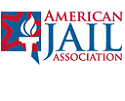 The AJA is the only professional organization in the nation that is devoted to issues specific to correctional facility operations. Members have the opportunity to contribute articles to the AJA’s award-winning publication and participate in training programs for career development. Student members receive discounts on educational and certification opportunities for professional development as well as a subscription to AJA’s bimonthly publication.
The AJA is the only professional organization in the nation that is devoted to issues specific to correctional facility operations. Members have the opportunity to contribute articles to the AJA’s award-winning publication and participate in training programs for career development. Student members receive discounts on educational and certification opportunities for professional development as well as a subscription to AJA’s bimonthly publication.
American Probation and Parole Association (APPA)
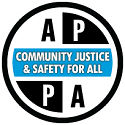 The APPA serves as the voice for criminal and juvenile justice professionals involved with pretrial, probation, parole and community-based corrections in the United States, Canada and other countries around the world. Members are also made up of students, educators, volunteers, victim service providers, citizens and more. Student members receive discounts on APPA training courses and well as full membership entitlements, including voting rights, participation in committees and more.
The APPA serves as the voice for criminal and juvenile justice professionals involved with pretrial, probation, parole and community-based corrections in the United States, Canada and other countries around the world. Members are also made up of students, educators, volunteers, victim service providers, citizens and more. Student members receive discounts on APPA training courses and well as full membership entitlements, including voting rights, participation in committees and more.
American Academy of Forensic Science (AAFS)
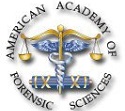 Forensic science continues to play a larger role in criminal justice. Since its founding in 1948, AAFS has worked to advance science and its application to the law for better criminal outcomes. Students can join the Young Forensic Scientists Forum, which provides information on continued education and credentialing programs as well as employment and mentoring opportunities. You will also receive a subscription to the association newsletter.
Forensic science continues to play a larger role in criminal justice. Since its founding in 1948, AAFS has worked to advance science and its application to the law for better criminal outcomes. Students can join the Young Forensic Scientists Forum, which provides information on continued education and credentialing programs as well as employment and mentoring opportunities. You will also receive a subscription to the association newsletter.
International Association of Women Police (IAWP)
 Women have faced a lot of battles in the workforce, and the same can be said in criminal justice. The IAWP is guided by its founding mission to strengthen, unite and raise the profile of women in law enforcement and criminal justice. The association strives to limit industry discrimination against women and increase their value in the workforce for their contributions to the field through program initiatives, community outreach and industry advocacy. Student members gain access to an international network of women police as well as notifications of job opportunities and professional development courses.
Women have faced a lot of battles in the workforce, and the same can be said in criminal justice. The IAWP is guided by its founding mission to strengthen, unite and raise the profile of women in law enforcement and criminal justice. The association strives to limit industry discrimination against women and increase their value in the workforce for their contributions to the field through program initiatives, community outreach and industry advocacy. Student members gain access to an international network of women police as well as notifications of job opportunities and professional development courses.
International Community Corrections Association (ICCA)
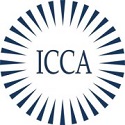 Crime affects entire communities. The ICCA recognizes how crime can reshape neighborhoods and aims to act as a voice for residential and other community corrections programs that strive to reduce crime rates and limit the overall effect of crime on their community by rehabilitating criminals and working with juveniles to prevent a life of crime. Student members receive a reduced membership fee as well as discounts on conference fees and books. Students also receive access to ICCA’s journal publication and monthly newsletter, as well as full voting rights.
Crime affects entire communities. The ICCA recognizes how crime can reshape neighborhoods and aims to act as a voice for residential and other community corrections programs that strive to reduce crime rates and limit the overall effect of crime on their community by rehabilitating criminals and working with juveniles to prevent a life of crime. Student members receive a reduced membership fee as well as discounts on conference fees and books. Students also receive access to ICCA’s journal publication and monthly newsletter, as well as full voting rights.
Justice Research and Statistics Association (JRSA)
 The JRSA is a national association that includes members representing state Statistical Analysis Center (SAC) directors as well as researchers and practitioners representing fields, including government, academia and criminal justice. JRSA conducts and publishes valuable data on justice issues while also providing training and technical assistance to members in the field. Student members receive discounts on JRSA conference and training classes as well as access to numerous industry publications and newsletters.
The JRSA is a national association that includes members representing state Statistical Analysis Center (SAC) directors as well as researchers and practitioners representing fields, including government, academia and criminal justice. JRSA conducts and publishes valuable data on justice issues while also providing training and technical assistance to members in the field. Student members receive discounts on JRSA conference and training classes as well as access to numerous industry publications and newsletters.
National Black Police Association (NBPA)
 The NBPA is made up of regional African American Police Associations that strive to promote justice, fairness and effectiveness in law enforcement and criminal justice. The NBPA serves as an advocate for minority police officers and provides a national network for professional development and training. Student members receive reduced conference registration fees as well as a subscription to the NBPA Advocate and updates on networking opportunities in your area.
The NBPA is made up of regional African American Police Associations that strive to promote justice, fairness and effectiveness in law enforcement and criminal justice. The NBPA serves as an advocate for minority police officers and provides a national network for professional development and training. Student members receive reduced conference registration fees as well as a subscription to the NBPA Advocate and updates on networking opportunities in your area.
National Criminal Justice Association (NCJA)
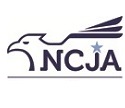 NCJA represents state, tribal and local governments and works to promote a balanced approach to communities’ complex public safety and criminal and juvenile justice system problems. Student members receive a weekly newsletter that focuses on government affairs issues, new research and promising practices. In addition, student members have access to free webinars, discounted registration at meetings and networking opportunities.
NCJA represents state, tribal and local governments and works to promote a balanced approach to communities’ complex public safety and criminal and juvenile justice system problems. Student members receive a weekly newsletter that focuses on government affairs issues, new research and promising practices. In addition, student members have access to free webinars, discounted registration at meetings and networking opportunities.
National Organization for Victim Assistance (NOVA)
 NOVA is the oldest national victim assistance organization in the United States and was founded in 1975. NOVA’s operational values include compassion, accountability, collaboration and passion. Student members have access to training courses and programs related to the field of victim assistance.
NOVA is the oldest national victim assistance organization in the United States and was founded in 1975. NOVA’s operational values include compassion, accountability, collaboration and passion. Student members have access to training courses and programs related to the field of victim assistance.
Southern Criminal Justice Association (SCJA)
 As a regional organization affiliated with the Academy of Criminal Justice, SCJA focuses on the southeastern United States as well as Puerto Rico and the Virgin Islands. Established in 1972, SCJA serves educators, researchers, practitioners and students in the criminal justice field. Student members will be considered for annual awards, which will boost your resume. Students will also receive subscriptions to various industry publications.
As a regional organization affiliated with the Academy of Criminal Justice, SCJA focuses on the southeastern United States as well as Puerto Rico and the Virgin Islands. Established in 1972, SCJA serves educators, researchers, practitioners and students in the criminal justice field. Student members will be considered for annual awards, which will boost your resume. Students will also receive subscriptions to various industry publications.
If one is of these associations is of interest to you, contact it to determine whether it has a local or regional chapter, or if it offers special student membership rates and other benefits.